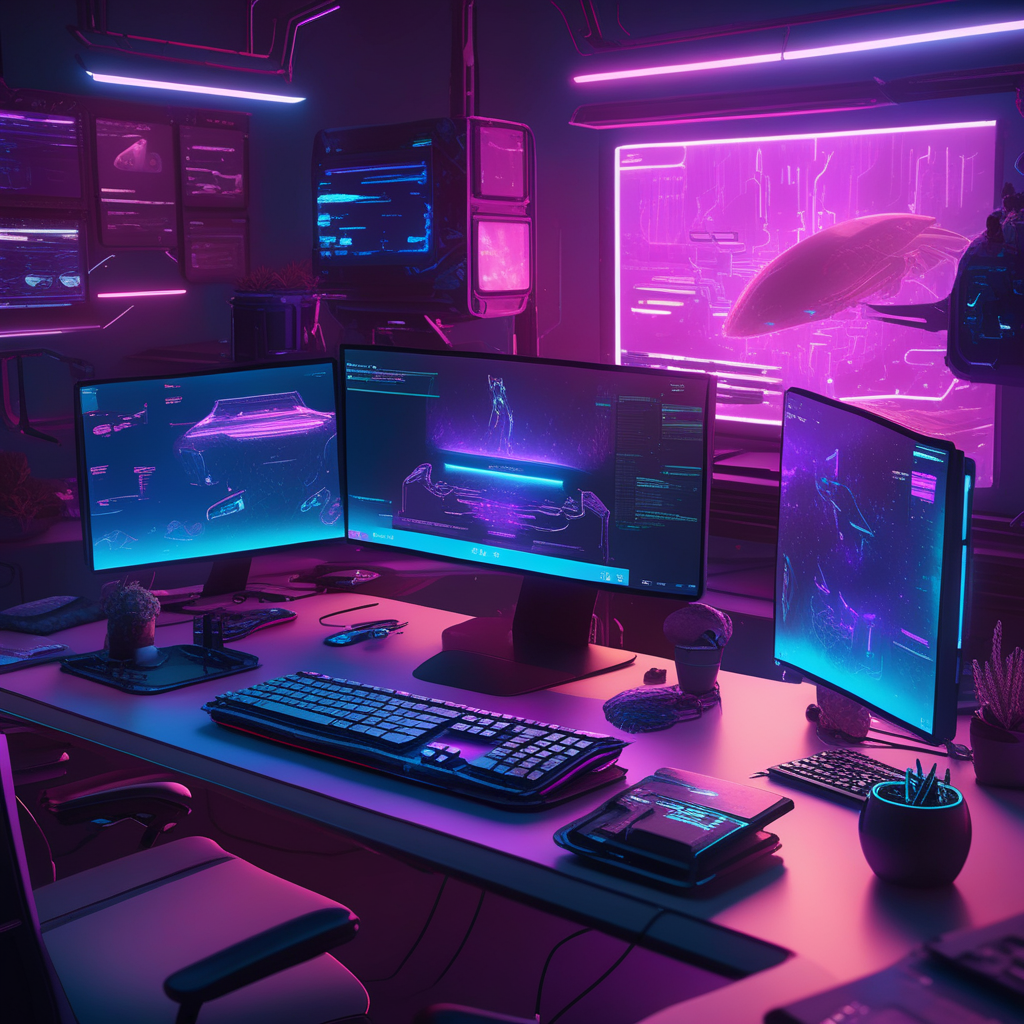⚡️ Saturday AI Sparks 🤖 - 🎨🤖 Generate Images with Stable Diffusion
Posted on: September 27, 2025
Description:
Text-to-Image generation has become one of the most exciting applications of AI. With just a text prompt, you can create detailed, high-quality visuals for design, art, or creative projects.
In this post, we’ll use the Stable Diffusion API from Stability AI to generate images directly from Python.
Why Stable Diffusion?
- Creative control → the image is guided entirely by your prompt.
- Flexible → choose resolution, steps, guidance scale, and samplers.
- Accessible → available via REST API, no need for heavy local setup.
- Use cases → digital art, marketing visuals, mockups, and prototyping.
Installing Requirements
We’ll use requests to interact with the API and Pillow/matplotlib for preview.
pip install requests pillow matplotlib
Setting Up the API Key
You’ll need a free account on Stability AI to generate an API key. Keep it private.
import os
STABILITY_API_KEY = os.getenv("STABILITY_API_KEY")
if not STABILITY_API_KEY or STABILITY_API_KEY == "YOUR_API_KEY_HERE":
raise ValueError("Please set STABILITY_API_KEY to your actual key before running.")
Defining the Prompt
The quality of results depends heavily on your prompt. Here’s an example:
prompt = "A futuristic hi-tech coding desk with holographic screens, neon lighting, ultra-detailed, cinematic digital art"
negative_prompt = "blurry, low-res, distorted, text overlay, watermark"
Sending the API Request
Stable Diffusion requires JSON input with text_prompts and generation parameters.
import requests
endpoint = "<https://api.stability.ai/v1/generation/stable-diffusion-xl-1024-v1-0/text-to-image>"
headers = {
"Authorization": f"Bearer {STABILITY_API_KEY}",
"Content-Type": "application/json",
"Accept": "image/png",
}
payload = {
"text_prompts": [
{"text": prompt, "weight": 1},
{"text": negative_prompt, "weight": -1}
],
"cfg_scale": 7.5,
"steps": 30,
"width": 1024,
"height": 1024,
"samples": 1,
}
resp = requests.post(endpoint, headers=headers, json=payload)
if resp.status_code == 200:
with open("sdxl_output.png", "wb") as f:
f.write(resp.content)
print("✅ Image saved as sdxl_output.png")
else:
print("❌ Generation failed:", resp.text[:200])
Previewing the Result
You can display the output in a notebook or script:
from PIL import Image
import matplotlib.pyplot as plt
img = Image.open("sdxl_output.png")
plt.figure(figsize=(2, 2)) # passport-size preview
plt.imshow(img)
plt.axis("off")
plt.show()
Sample Output
With the example prompt above, the API generates an artistic hi-tech desk scene complete with neon lights and holographic screens. Results vary with each run.

Key Takeaways
- The Stable Diffusion API makes image generation as simple as a POST request.
- Prompt engineering is the key — detailed prompts produce better results.
- You can customize style, resolution, and guidance for different aesthetics.
- Useful for designers, creators, and developers experimenting with generative AI.
Code Snippet:
import os
# Option 1: set directly (not recommended for shared notebooks)
STABILITY_API_KEY = "YOUR_STABILITY_API_KEY_HERE"
# Option 2 (recommended): read from environment
# STABILITY_API_KEY = os.getenv("STABILITY_API_KEY")
if not STABILITY_API_KEY:
raise ValueError("Please set STABILITY_API_KEY to your actual key before running.")
# Your creative prompt
prompt = "a cozy reading nook with plants, warm sunlight, and a cat sleeping on a chair, cinematic, ultra-detailed"
# Optional negative prompt to avoid unwanted elements
negative_prompt = "blurry, low-res, text, watermark, logo, distorted"
# Image settings (SDXL 1024 works best with 1024x1024)
width, height = 1024, 1024
steps = 30
cfg_scale = 7.5
sampler = "K_DPM_2_ANCESTRAL" # or "K_EULER", "K_DPM_2", etc.
output_path = "sdxl_output.png"
import os, requests, json
STABILITY_API_KEY = "YOUR_STABILITY_API_KEY_HERE"
if not STABILITY_API_KEY:
raise ValueError("Please set STABILITY_API_KEY to your actual key before running.")
prompt = (""
"A futuristic hi-tech coding desk setup with multiple holographic monitors, "
"glowing neon keyboard, sleek laptop, and ambient blue-purple lighting. "
"The desk is minimalistic, surrounded by floating code screens and cyberpunk "
"vibes, ultra-detailed, cinematic lighting, 8k digital art.")
negative_prompt = "blurry, low-res, text, watermark, logo, distorted"
width, height = 1024, 1024 # SDXL likes 1024x1024
steps = 30
cfg_scale = 7.5
sampler = "K_DPM_2_ANCESTRAL" # e.g., "K_EULER", "K_DPM_2"
samples = 1 # number of images to generate
output_path = "sdxl_output.png"
endpoint = "https://api.stability.ai/v1/generation/stable-diffusion-xl-1024-v1-0/text-to-image"
headers = {
"Authorization": f"Bearer {STABILITY_API_KEY}",
"Content-Type": "application/json",
"Accept": "image/png",
}
payload = {
"text_prompts": [
{"text": prompt, "weight": 1},
{"text": negative_prompt, "weight": -1}
],
"cfg_scale": cfg_scale,
"steps": steps,
"width": width,
"height": height,
"sampler": sampler,
"samples": samples
}
resp = requests.post(endpoint, headers=headers, json=payload, timeout=120)
if resp.status_code == 200:
with open(output_path, "wb") as f:
f.write(resp.content)
print(f"✅ Image saved to: {output_path}")
else:
print("❌ Generation failed")
print("Status:", resp.status_code)
try:
print("Response:", resp.json())
except Exception:
print("Response (raw):", resp.text[:500])
from PIL import Image
import matplotlib.pyplot as plt
img = Image.open(output_path)
plt.figure(figsize=(2, 2)) # ~passport-size in notebook
plt.imshow(img)
plt.axis("off")
plt.title("SDXL Preview")
plt.show()





No comments yet. Be the first to comment!